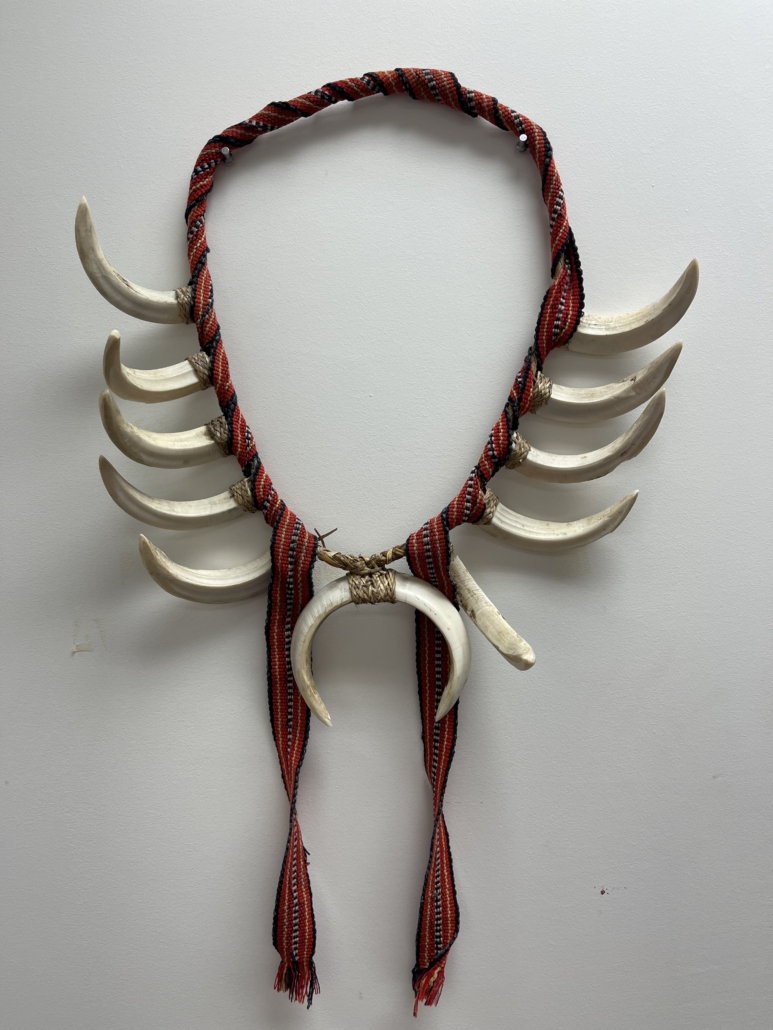Pictured above is a Buwaya, a necklace made from boar tusks. Although the buwaya is non-traditional, it symbolizes a person’s wealth.
The Ifugao have a large variety of distinct rites and rituals, each relating to different aspects of Ifugao life. Historically, some of these rituals include divination, hunting, swidden farming, rice rituals, prestige feasts, sale of slave, debt collection, head-hunting, head-losing, and peace. These rituals happen quite frequently throughout the year and generally call for a minimum number of offerings or animal sacrifices. Pigs are one of the most frequently chosen animals for sacrifice, and are used in many rituals, including, but not limited to, feasts, funerary rites, fertility rituals, and marriage ceremonies. In rituals, domestic pigs are favored over wild pigs, as it is perceived as offensive to offer supernatural beings animals from the forest that already belong to them. They also hold the belief that domestic pigs embody the nature of human life and retain the essence of the owner who sacrificed it, and so pigs must be raised and bought, rather than hunted. Due to their prevalence in Ifugao life, ritual commodities such as pigs may be both purchased with rice and traded for rice fields. In this way, pigs are not only a symbol of prestige but also wealth.
The Ifugao adopted wet-rice farming shortly after they resettled to the interior of the Cordillera mountains as a result of the Spanish conquest of the Magat Valley. Prior to wet-rice farming, the Ifugao cultivated taro; this shift to wet-rice farming directly correlates with an increase in ritual feasting and therefore, an increase in the consumption of domesticated pigs. It also caused a shift in Ifugao socio-political culture. Intensive labor was required to cultivate wet-rice agriculture. As a result, those that were able to mobilize the community to cultivate rice were granted political power and also helped to establish a ranked society. The focus on wet-rice farming also gave community members the opportunity to establish political ranking by providing prestige feasts for the community.
Rituals and feasts offer individuals a chance to reinforce interpersonal relations both within their kin groups and with the rest of their community. After the ritual sacrifice of an animal (often pigs), various parts of the meat are distributed to the participants according to their relationship to the host. Non-kin participants receive meat in return for gifts given to the sponsor of the ritual, while kin are expected to receive predetermined portions of meat. The raising of domestic pigs is expensive, as pigs are usually fed sweet potato or taro, and as such the ownership of many pigs is generally limited. The sacrifice and distribution of pigs, therefore, is an important part of how individuals gain prestige, as the ability to host ritual feasts is indicative of the individual’s social standing, economic prosperity, and wealth.


